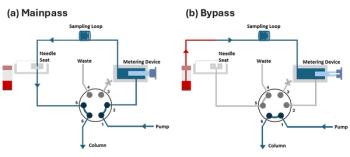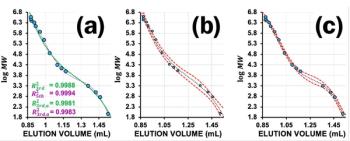
- LCGC North America-12-01-2016
- Volume 34
- Issue 12
Book Review: Chromatography: Principles and Instrumentation
Lawrence W. Potts, Emeritus Prof. of Chemistry, Gustavus Adolphus College reviews Mark F. Vitha's new book from Wiley, "Chromatography: Principles and Instrumentation."
Lawrence W. Potts, Emeritus Professor of Chemistry at Gustavus Adolphus College, reviews Mark F. Vitha’s new book from Wiley, Chromatography: Principles and Instrumentation
Mark Vitha has written a book that will appeal to students, teachers, and perhaps professional analysts who need a refresher in the fundamentals of chromatography. The book consists of three sections of about equal length dealing with separation theory, gas chromatography (GC), and liquid chromatography (LC). The section on theory is especially strong. Vitha is an experienced educator who understands the undergraduate audience and explains concepts clearly. He uses analogies to help students with abstract ideas, something I have seen little of in the sciences. He also freely uses ideas and terms from thermodynamics that can be grasped by students who have studied physical chemistry. An example is his clear development of retention indices in GC. Discussions are comfortably worded and not at all pedantic in tone. There are many example problems and excellent end-of-chapter problems with solutions.
Graduate students might want to use this book, with additional depth provided by their instructors and current and classic papers (many are referenced). Graduate students need more depth in areas such as solvent theory and the selection of solvents, for example, than is given in this book.
The sections of the book dealing with specifics of hardware, stationary phases, and solvents are an easy read for a practicing chromatographer but might be harder for today’s students, who seem to have shorter attention spans than ever before. I very much like the practical way Vitha justifies hardware choices based on performance and cost-effectiveness.
There is a lot that’s new in chromatography and in the teaching of instrumentation. Vitha’s new book gives teachers some new opportunities for dealing with both. First, in my opinion, chromatography is so important in chemical analysis that a modern undergraduate instrumentation course should devote at least a half semester to chromatographic separations. Vitha’s book would be perfect for such a course. It would be valuable for students to do coursework in data handling, optical spectroscopy, mass spectrometry, and electrochemistry, perhaps using modular books, before using Vitha’s book to bring those concepts together in chromatography. While most modern course-flippers use video lectures for students to watch and then use class time for problem-solving, they could flip back with Vitha’s book as a substitute for video lectures in chromatography theory.
I taught instrumental methods to undergraduate students for many years using encyclopedic full-course texts. I wish there had been as fine a pedagogical tool as this more-focused new textbook at that time.
Professor Lawrence W. Potts is an Emeritus Professor of Chemistry at Gustavus Adolphus College in St. Peter, Minnesota. He received the 2010 J. Calvin Giddings Award for Excellence in Education from the Analytical Division of the ACS. Direct correspondence to:
Articles in this issue
about 9 years ago
Failed System Suitability Test: A Case Studyabout 9 years ago
Tips for Optimizing Key Parameters in LC–MSabout 9 years ago
Vol 34 No 12 LCGC North America December 2016 Regular Issue PDFNewsletter
Join the global community of analytical scientists who trust LCGC for insights on the latest techniques, trends, and expert solutions in chromatography.




